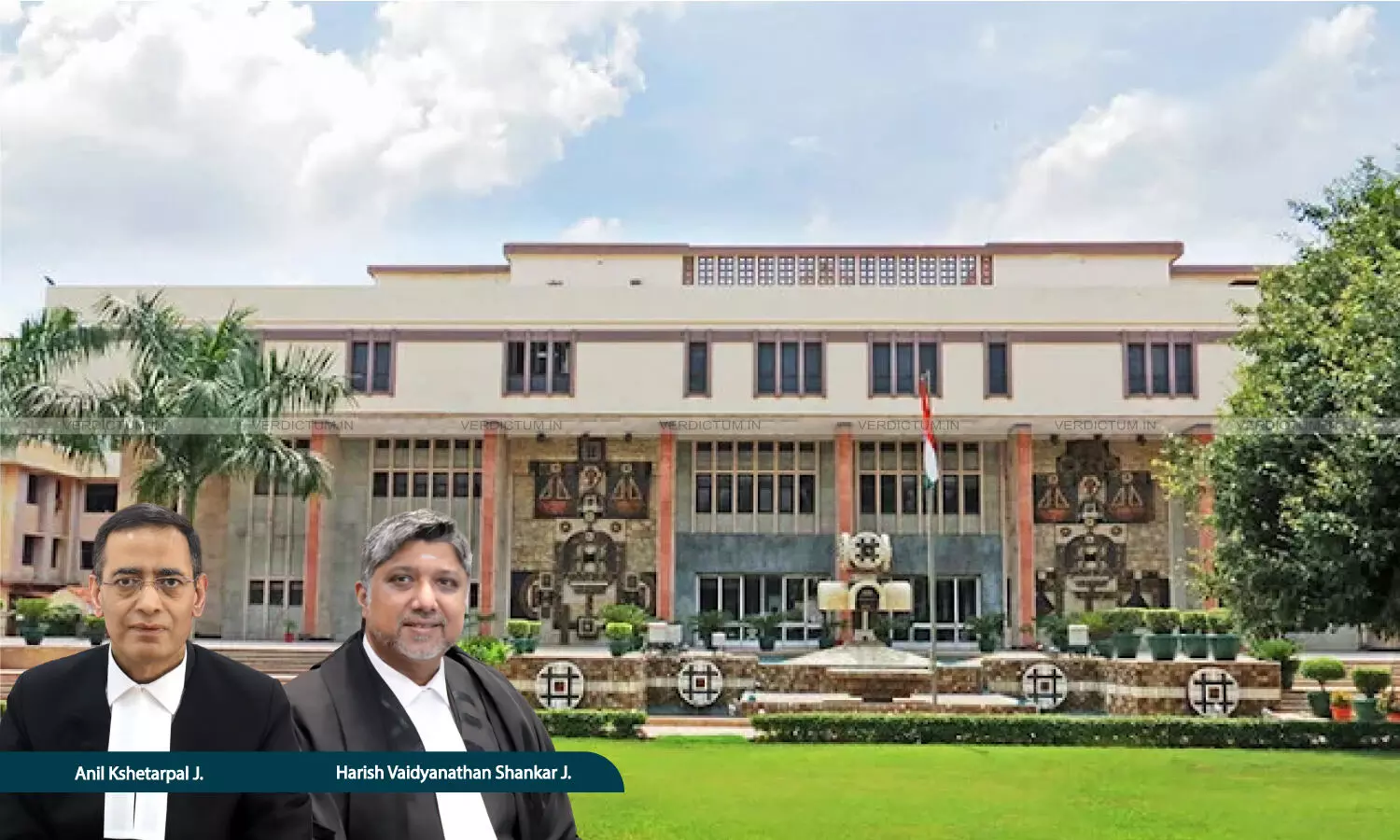
Justice Anil Kshetarpal and Justice Harish Vaidyanathan Shankar, Delhi High Court
Mere Fact That Parties Resided Under Same Roof After Discovery Of Fraud Can't Be Treated As Resumption Of Marital Cohabitation: Delhi High Court
 |
|The Appeal before the Delhi High Court was filed against the Judgment by which the Family Court had declared the marriage between the parties as null and void.
While upholding an order declaring a marriage as void where the woman concealed the fact that she lacked a uterus, the Delhi High Court has concurred with the view that the mere fact that the parties resided under the same roof after the discovery of fraud cannot, in law, be treated as a resumption of marital cohabitation.
The Appeal before the Delhi High Court was filed under Section 19(1)(4) of the Family Courts Act, 1984 read with Section 151 of the Code of Civil Procedure, 1908, against the Judgment by which the Family Court had declared the marriage as between the parties as null and void under Section 12(1)(c) of the Hindu Marriage Act, 1955.
The Division Bench of Justice Anil Kshetarpal and Justice Harish Vaidyanathan Shankar held, “We concur with the findings of the learned District Judge that the mere fact that the parties resided under the same roof after the discovery of fraud cannot, in law, be treated as a resumption of marital cohabitation. Cohabitation necessarily implies a conscious and mutual intention of both spouses to restore normalcy in their marital relationship, which was evidently absent in the present case. Consequently, the bar under Section 12(2)(a)(ii) of the Act is not attracted.”
Advocate Sanjeev Kumar represented the Petitioner while Advocate Adarsh Varma represented the Respondent.
Arguments
The solitary challenge in this Appeal raised on behalf of the Appellant, was that the provisions of Section 12(1)(c) of the Act are not applicable to the present case. It was the appellant’s case that there was no concealment of any material fact at the time of marriage. It was argued that the Appellant herself was unaware of her medical condition,i.e. the absence of a uterus, and therefore, in the absence of such knowledge, the question of deliberate concealment did not arise.
Reasoning
Section 12(1)(c) of the Act contemplates annulment of a marriage on the ground of fraud “….as to any material fact or circumstance concerning the respondent”.
On a perusal of facts and the depositions, the Bench noted that the Appellant’s testimony was riddled with material contradictions regarding her medical condition, particularly the absence of a uterus, and her knowledge thereof. “On the one hand, she sought to portray herself as capable of conceiving, even alleging pregnancy and miscarriage, whereas, in her cross-examination, she categorically admitted that she never had a uterus. This fundamental inconsistency, coupled with her belated and unsubstantiated versions about alleged surgical removal and stitch marks, destroys her credibility”, it said.
In light of the Appellant’s repeated denials, followed by subsequent admissions, coupled with the mutually destructive stands taken in her written statement, examination-in-chief, and cross-examination, the Bench concluded that the Appellant was playing a cat and mouse game and tried to concoct different versions of an unexisting state of affairs. This, according to the Bench, established that she was fully aware of her medical condition but chose to suppress it.
The Bench also concurred with the view of the District Judge that it was difficult to accept that a 24-year-old woman residing in a metropolitan city like Delhi could have remained unaware of the complete absence of menstruation. “This Court finds it hard to believe that till the age of 24 she never sought to question the absence of menstruation when in all likelihood, most women, from nearabout the time when they are teenagers would experience Menarche. The report of the Doctor states that she lacked a uterus and thereby she would not have experienced the natural phenomenon of menstruation”, the Bench added.
Thus, considering the fact that the Appellant chose to continuously spin a new version at various points in time, the Bench dismissed the appeal.
Cause Title: A v. B (Neutral Citation: Mat. App. (F.C.) 49/2025 and CM APPL. 7144/2025)
Appearance
Petitioner: Advocate Sanjeev Kumar
Respondent: Advocates Adarsh Varma, Swati Kumar